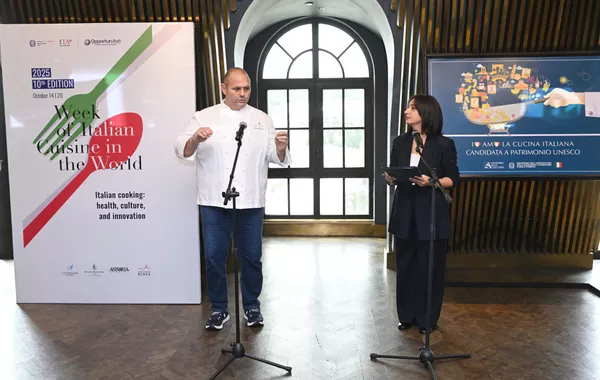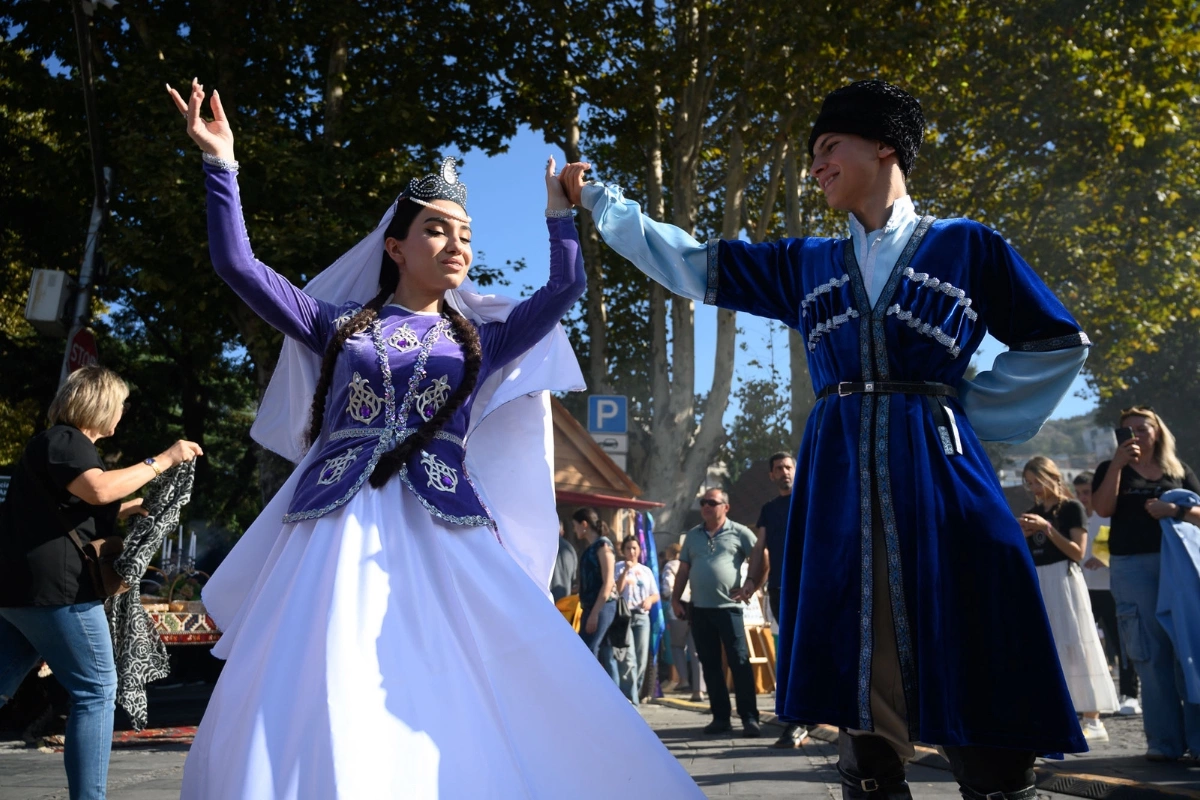
Despite Tbilisi’s relatively modest percentages of ethnic Armenian and Azerbaijani populations, these communities retain their identities while coexisting amicably in shared areas of the Georgian capital. At festivals like Tbilisoba, both groups come together to celebrate their shared country of birth.
Image: Onnik James Krikorian
On 5-6 October 2024, Tbilisi once again staged its annual celebration of the city’s rich cultural heritage. The festival known as ‘Tbilisoba’ was founded in 1979. It was suspended during the days of social and political unrest and civil war in the early 1990s but resumed in 1995. Though it has shrunk in scale over the years, Tbilisoba remains an important date in the cultural calendar.
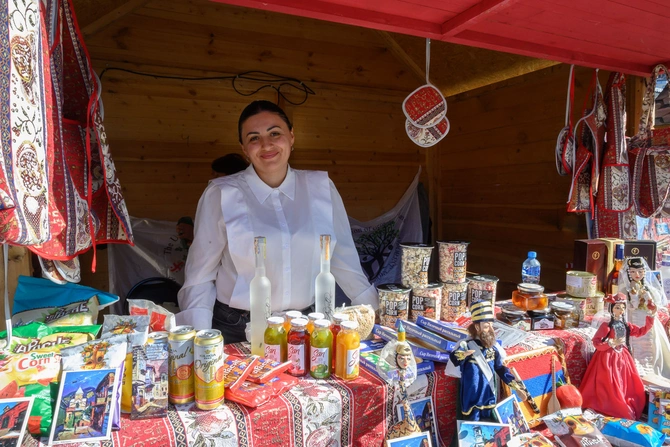
Image: Onnik James Krikorian
The festival is held at multiple locations with family-style events such as marching bands, face-painting stalls for children, and a saturation of cafes and barbecue kiosks in central Orbeliani Square and Rike Park. Though hardly advertised this year, traditional Georgian folk music and dance shows were relocated 7 km out of the centre to the Open Air Museum of Ethnography. Far fewer events were centred on Abanotubani, the old town district famous for its sulphur baths. However, this was the place to come to see representation from Georgia’s national minorities. Taking pride of place, at the beginning of the event space here were two stalls serving Azerbaijani delicacies while two members of Tbilisi’s Azerbaijani dance group ‘Jeiran’ wearing traditional dress performed short dances and welcomed visitors. Also present were stalls run by the local ethnic Armenian, Greek, and other minority communities. Around the corner, outside the local chaikhana, ethnic Armenians, Azerbaijanis, and Georgians held their own barbecue washed down with Georgian wine. At a table surrounded by mainly ethnic Azerbaijanis, one elderly ethnic Armenian singer called Albert sang in both the Armenian and Azerbaijani language amid toasts to Tbilisoba and the surrounding neighbourhood.
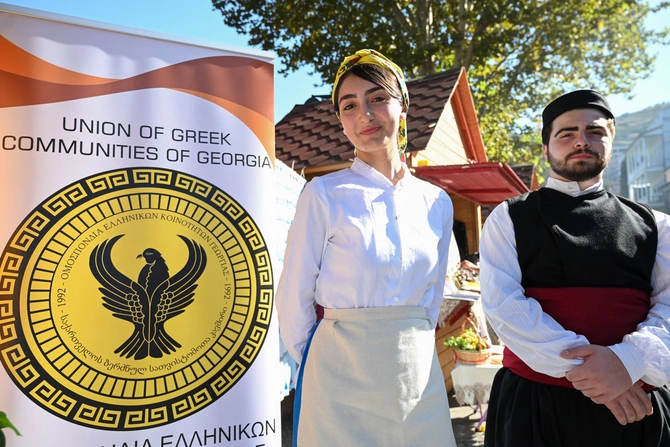
Image: Onnik James Krikorian
Though the ethnic balance of Tbilisi continues to change, Abanotubani remains a vibrant melting pot of regional cultures. This is where Novruz is celebrated in March [1], and there is definitely the impression in recent years that the ethnic Azerbaijani community of around 15,000 in Tbilisi is developing a more prominent role in the city’s cultural life.
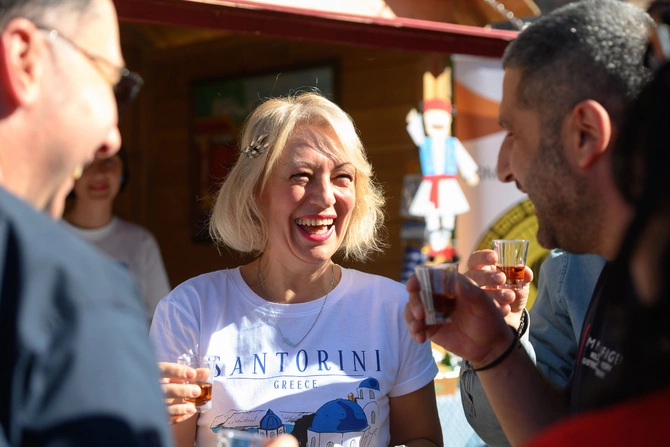
Image: Onnik James Krikorian
[1] though most of Georgia’s ethnic Azerbaijani population is located in the Marneuli Municipality of the Kvemo Kartli region
Share on social media
